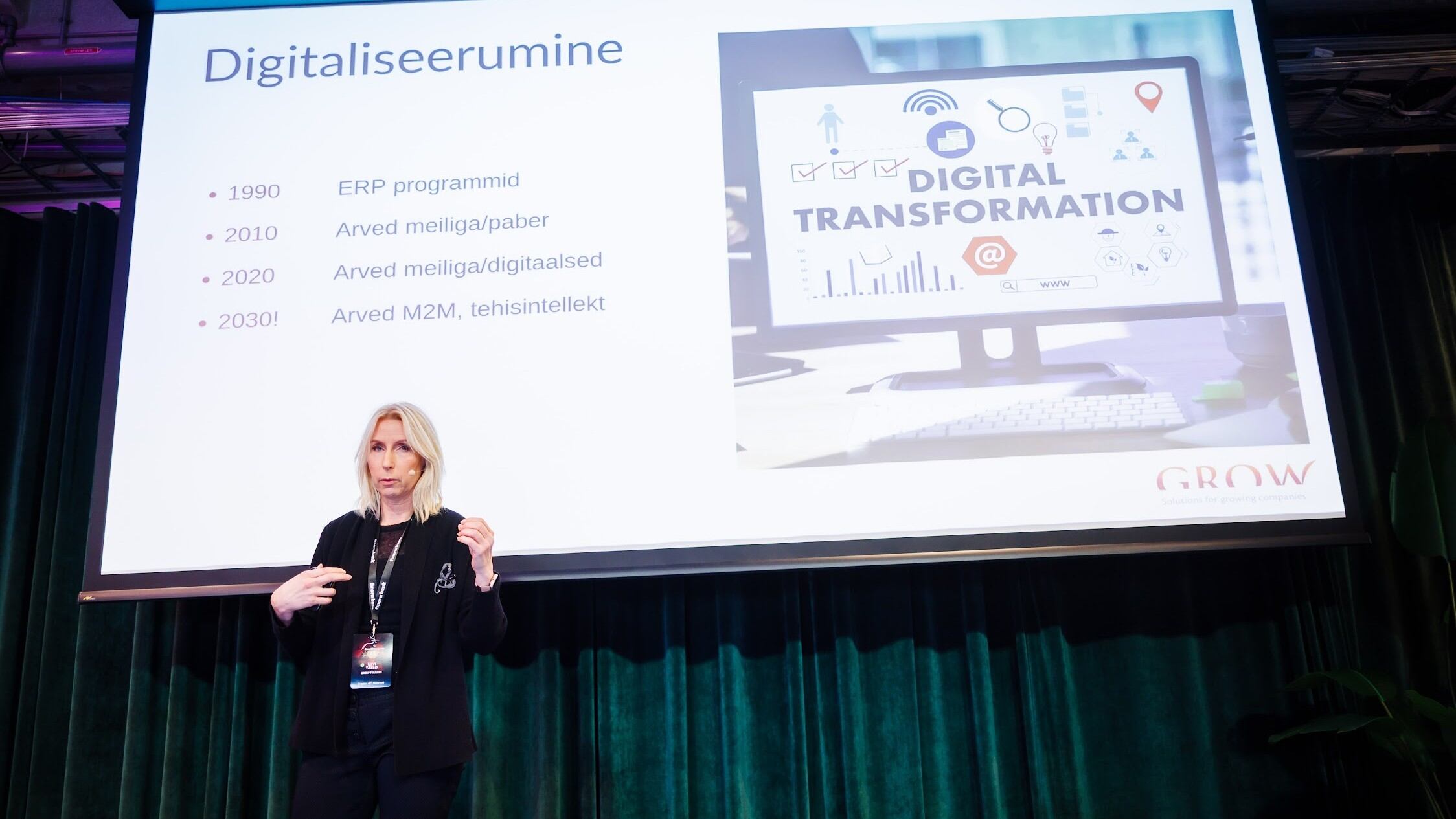
Image author: photographer Raul Mee/ Business News AS
When will artificial intelligence, or AI, take over accounting?
Grow Finance partner Ulvi Tallo discusses this intriguing idea.
Lately, I've been hearing more and more that accounting will be one of the first areas to be taken over by AI. This possibility was also raised by ChatGPT, but Copilot disagreed.
In Estonia, accounting has reached the final stretch of digitalization – over 90% of processes are already digital. This means that digitalization is almost complete. However, the next big challenge is automation and the wider adoption of artificial intelligence, which will allow for a new level of efficiency and accuracy.
What do the most progressive accountants in the international market think about this? Will AI eventually replace accountants and accounting firms? Certainly, AI can perform many assistant tasks, but it will not replace the chief accountant anytime soon.
What is certain is that accountants and accounting firms need to understand both AI and automation to do their jobs as efficiently as possible. Many similar and repetitive accounting functions can be automated using artificial intelligence. However, there are several good reasons why it is unlikely that AI will be able to fully replace the accountant – mainly because being a successful accountant also requires human skills and judgment.
Accounting
Artificial intelligence is exceptionally adept at performing repetitive and process-based accounting tasks. It can process data in a fraction of the time and with greater accuracy than a human could ever do.
However, AI cannot replace jobs that require human judgment and contextual awareness. For example, AI can help a financial analyst forecast revenues and expenses using historical data and reasonable assumptions.
There is also discussion in Estonia that if all companies exchanged e-invoices, all the information on the invoice being sent could be automatically placed in the correct records in the recipient's system. In most cases, this is possible, but not always, because different companies consume products and services very differently. Therefore, transactions with differences cannot be fully automated.
So, while AI is a useful tool, it cannot replace the analytical and strategic thinking of an experienced accountant.
Analysis
Artificial intelligence and accountants are both strong in the quantitative aspect of accounting. AI is usually faster, cheaper, and more accurate, providing more efficient solutions in data processing and analysis.
But AI lacks:
- intuition that helps to spot hidden financial risks or opportunities,
- empathy to understand customers' expectations and fears,
- contextual awareness to take into account economic, political and legal factors.
These qualities make the role of accountants indispensable, especially in strategic and advisory roles.
Human factor and trust
In addition to quantitative and qualitative analysis, the human factor is an important part of accountants' work.
Businesses need trusted financial experts and advisors who:
- understand their vision and goals,
- offer personal advice and support,
- build long-term and trusting relationships.
No AI can replace the human interaction, empathy, and trust that are at the heart of accounting and financial advice. Ultimately, there must be a human to guide the AI’s work, ensuring the accuracy, verifiability, security, and manageability of the results.
Conclusion: AI complements, not replaces, accountants and analysts
AI will automate many routine accounting tasks over time, but it will not replace humans. Instead, AI will allow accountants to focus on strategic, advisory, and interpretive tasks that create greater value for businesses and clients.
So accountants don't have to fear AI - rather, artificial intelligence can become their inseparable partner, increasing work efficiency and the value they provide.



